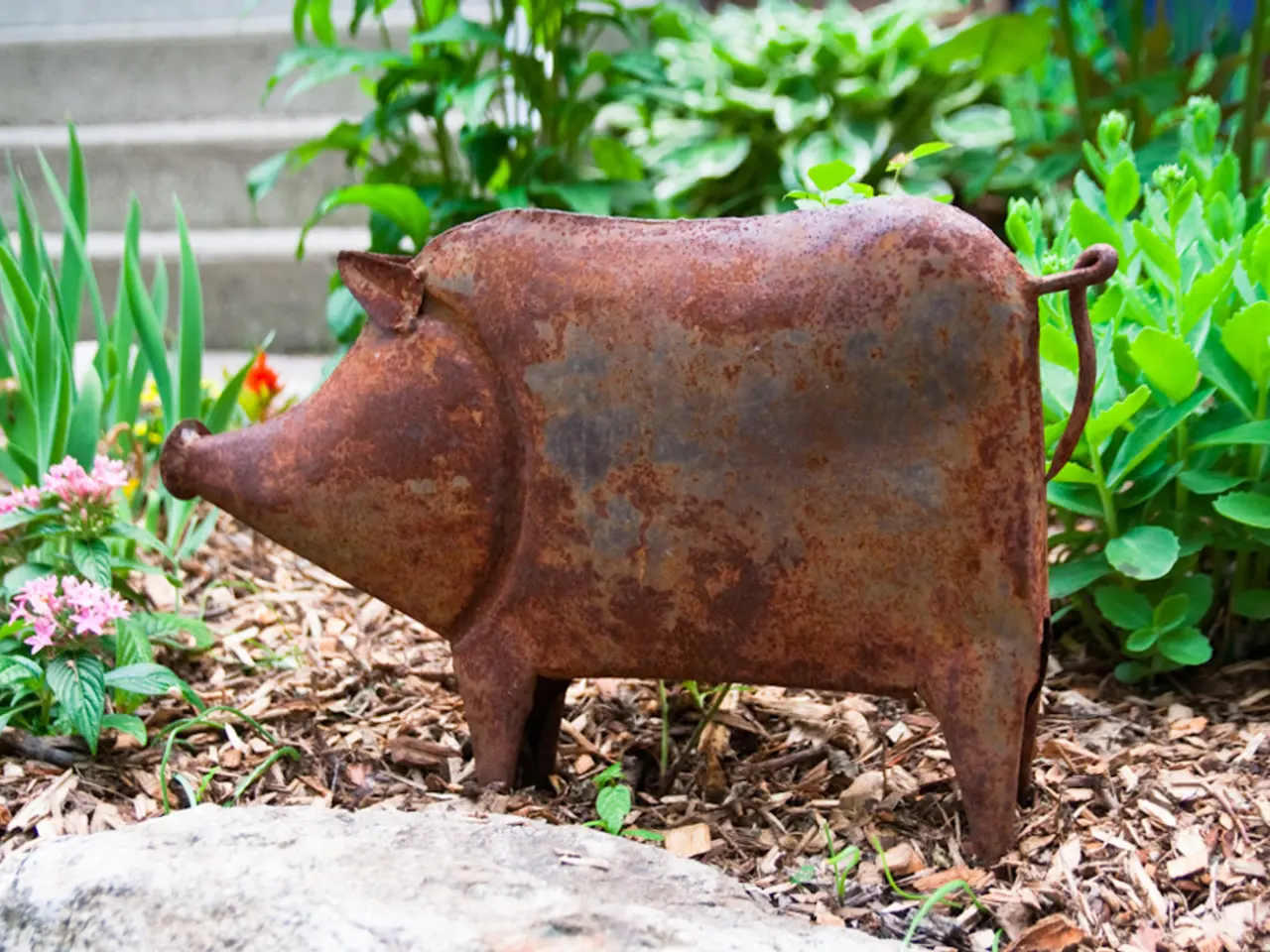Hair Loss from Iron Deficiency: Identifying Signs, Remedies, and Revitalization Strategies
In a world where maintaining good health is paramount, it's essential to understand the intricate links between various bodily functions. One such connection is between iron deficiency anemia and hair loss.
Iron, an essential mineral, plays a crucial role in maintaining healthy hair growth. Low iron levels can impede the transport of oxygen to hair follicles, leading to hair thinning and loss. This is particularly true in cases of iron deficiency anemia or even when ferritin levels, a marker of stored iron, are low[1][3].
Symptoms of low ferritin levels can manifest as fatigue, shortness of breath, and hair loss[3]. To combat these issues, treatment options are available.
## Treating Iron Deficiency Anemia
Addressing iron deficiency anemia is a multi-faceted approach. Dietary changes, such as increasing consumption of iron-rich foods like red meat, spinach, and lentils, can help boost iron levels[1]. Iron supplements are often recommended to quickly increase iron stores, especially in cases where dietary changes are insufficient[1]. Regular ferritin tests can help monitor and adjust treatment plans as needed[3].
## Treating Hair Loss
For those experiencing hair loss due to iron deficiency, correcting the deficiency with supplements can help restore healthy hair growth[2]. Ensuring adequate intake of iron, zinc, biotin, and other essential nutrients supports overall hair health[2].
In cases of autoimmune or hormonal causes, treatments may vary. Thyroid medication is crucial for hypothyroidism-related hair loss, while immunotherapy can help reduce autoimmune attacks on hair follicles in conditions like alopecia areata[2].
General scalp health is also crucial. Medicated shampoos can help manage conditions like dandruff or dermatitis, creating a healthy scalp environment. Laser therapy (LLLT) supports blood flow to the scalp, promoting hair growth, and scalp massage and dermarolling can stimulate hair follicles[2].
## Innovative Treatments
Doctors are researching new techniques to restore hair growth, including platelet-rich plasma (PRP) treatment. This involves separating platelets from a person's blood and injecting them into areas of the scalp affected by hair loss[4].
Minoxidil, a topical solution, is another option doctors may recommend for treating hair loss[4]. In severe cases, surgical techniques, such as hair transplantation, may be used to restore hair if other treatments are ineffective[4].
By addressing the underlying causes of hair loss and treating iron deficiency anemia, individuals can effectively manage and improve both conditions. Regular medical check-ups and personalized treatment plans are essential for optimal outcomes.
[1] Mayo Clinic. (2021). Iron deficiency anemia. https://www.mayoclinic.org/diseases-conditions/iron-deficiency-anemia/symptoms-causes/syc-20355895
[2] American Academy of Dermatology. (2021). Hair loss (alopecia). https://www.aad.org/public/diseases/hair-scalp/hair-loss
[3] Cleveland Clinic. (2021). Iron deficiency anemia. https://my.clevelandclinic.org/health/diseases/16766-iron-deficiency-anemia
[4] National Health Service (NHS). (2021). Hair loss. https://www.nhs.uk/conditions/hair-loss/
- Understanding the complex interplay between various bodily functions is crucial in maintaining good health, particularly the link between iron deficiency anemia and hair loss.
- Low iron levels can hinder the transport of oxygen to hair follicles, leading to hair thinning and loss, especially in cases of iron deficiency anemia or low ferritin levels.
- Symptoms of low ferritin levels can include fatigue, shortness of breath, and hair loss.
- To tackle iron deficiency anemia, dietary changes such as increasing consumption of iron-rich foods and iron supplements are typically recommended.
- Regular ferritin tests are useful for monitoring and adjusting treatment plans as needed.
- For those experiencing hair loss due to iron deficiency, repairing the deficiency with supplements can aid in restoring healthy hair growth.
- Ensuring adequate intake of iron, zinc, biotin, and other essential nutrients supports overall hair health.
- In cases of autoimmune or hormonal causes, treatments may differ, with thyroid medication necessary for hypothyroidism-related hair loss and immunotherapy to reduce autoimmune attacks in conditions like alopecia areata.
- Scalp health is vital, and medicated shampoos, laser therapy, scalp massage, and dermarolling help create a healthy scalp environment and stimulate hair follicles.
- Doctors are researching innovative treatments like platelet-rich plasma (PRP) to restore hair growth.
- Minoxidil, a topical solution, is another option that doctors may recommend for treating hair loss.
- Surgical techniques such as hair transplantation may be used in severe cases where other treatments are ineffective.
- Addressing the root causes of hair loss and treating iron deficiency anemia helps individuals effectively manage and improve both conditions.
- Regular medical check-ups and personalized treatment plans are essential for optimal outcomes.
- Chronic diseases, such as chronic kidney disease, mental-health issues like depression and disorders such as migraine or psoriasis, neurological disorders, eye-health problems like macular degeneration, and hearing concerns, also require attention in the context of overall health and wellness, along with fitness and exercise, mental-health support, skin-care, therapies and treatments, and proper nutrition.







